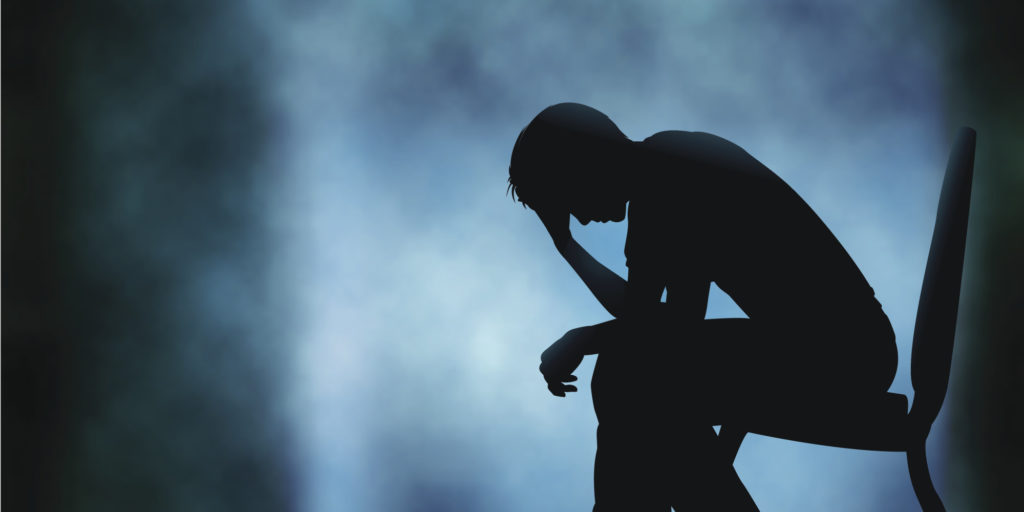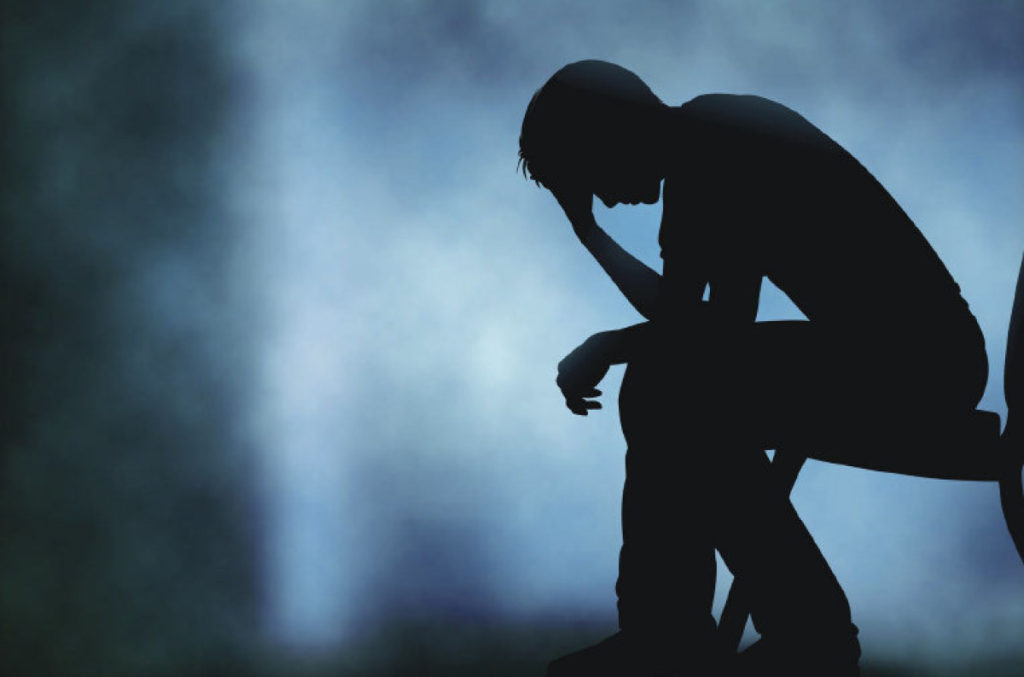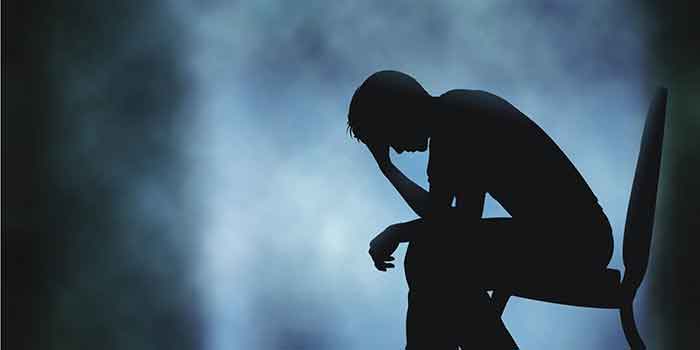
Among the many challenges India faces, the most underappreciated is the ongoing mental health crisis. Mental illness is actually India’s ticking bomb. An estimated 56 million Indians suffer from depression, and 38 million from anxiety disorders. For those who suffer from mental illness, life can seem like a terrible prison from which there is no hope of escape; they are left forlorn and abandoned, stigmatized, shunned and misunderstood.
The intensity of mental disorders is particularly worrying in adolescents. Half of all mental illness starts by the age of 14, but most cases go undetected and untreated. Suicide is the second leading cause of death among 15-29-year-olds in India.
India has 197.3 million people who live with a diagnosable mental disorder, today. 45 million have depression and roughly the same number live with anxiety. About 10 million people live with severe mental illnesses, such as bipolar disorders and schizophrenia.
The pathetic state of mental healthcare in the country coupled with the government’s apathy is a cause of great concern. A plausible reason is the sheer scale of the problem. Hence, nobody wants to discuss the elephant in the room. However, the nation cannot afford to ignore the stark reality.
There are only 43 mental hospitals in the country, and most of them are in disarray. Six states, mainly in the northern and eastern regions with a combined population of 56 million people, do not have a single mental hospital. Most government-run mental hospitals lack essential infrastructure, treatment facilities and have a sickening ambience. Visiting private clinics and sustaining the treatment, which is usually a long drawn-out affair, is an expensive proposition for most families.
Most government-run hospitals do not have psychiatric drugs, and visiting a private counselor and sustaining the treatment—usually a long drawn out affair—is an expensive proposition for most families. The ignorance and the callous attitude of the government towards psychiatric ailments, coupled with social stigma, dissuade most from seeking help. These factors are compounded by the existing treatment services. India has 0.3 psychiatrists and two mental health workers for every 100,000 individuals.
With resources tight an effective method for successfully tackling mental illness is a major expansion of online psychiatric resources such as virtual clinics and web-based psychotherapies. The economic consequences of poor mental health are quite significant. The cognitive symptoms of depression like difficulties in concentrating, making decisions and remembering cause significant impairment in work function and productivity.
The fact is that poor mental health is just as bad as or maybe even worse than any kind of physical injury. Left untreated, it can lead to debilitating, life-altering conditions. Medical science has progressed enough to be able to cure, or at least control, most mental-health problems with a combination of drugs, therapy and community support. Individuals can lead fulfilling and productive lives while performing day-to-day activities such as going to school, raising a family and pursuing a career.
People living with a mental illness face many impediments to their recovery and restoration to full functioning. Social determinants such as poverty, gender and education interplay with the deep-rooted stigma associated to any form of mental ill health. The lack of recognition of mental ill health propels families to seek support from a range of stakeholders before they reach professional care. Many valuable years of intervention time are lost in the process.
Although mental illness is experienced by a significant portion of the population, it is still seen as a taboo. Depression is so deeply stigmatised that people adopt enforced silence and social isolation. In villages, there are dreadful recorded cases of patients being locked up in homes during the day, being tied to trees or even being flogged to exorcise evil spirits. Stories of extreme barbarity abound in tribal cultures. In some societies, family honour is so paramount that the notion of seeking psychiatric help more regularly is anathema. Recognition and acknowledgement, rather than denial and ignorance, are the need of the hour.
Many a time, mental health problems are either looked down upon or trivialised. These man-made barriers deprive people of their dignity. We need to shift the paradigm of how we view and address mental illness at a systemic level. Tragically, support networks for the mentally ill as well as their caregivers are woefully inadequate. There is an urgent need for an ambience of empathy, awareness and acceptance of these people so that prejudices dissipate and patients are able to overcome the stigma and shame.
To make dignity in mental health a reality, it requires every member of society to work and take action together. In an effort to curb mental illness and create a congenial environment to address the mental well-being of the public, the Government of India repealed the archaic Mental Health Act 1987 passed the Mental HealthcareAct, 2016. Along with the promise to provide an international standard of care, the bill seeks to address the underlying social stigma and taboo attached to mental diseases.
India’s Mental Healthcare Act is a piece of very progressive legislation, and is the equivalent of a bill of rights for people with mental disorders. Fundamentally, the Act treats mental disorders on the same plane as physical health problems thus stripping them of all stigmatizations. Mental health issues get the same priority as physical disorders. Conceptually, the Act transforms the focus of mental health legislations from supposedly protecting society and families by relegating people with mental disorders to the status of second-class citizens, to emphasizing the provision of affordable and quality care, financed by the government, through the primary care system.
Modern medicine is a quest to understand pathogenesis, the biological cause of an illness. Once pathogenesis—the word comes from the Greek pathos (suffering) and genesis (origin)—has been established, accurate diagnoses can be made, and targeted therapies developed. But what can medicine do when pathogenesis remains elusive? That’s a question that has bedevilled the field of psychiatry for so long. Although our understanding of the brain is more sophisticated than ever before, psychiatry remains an empirical discipline, its practitioners are dependent on their (and their colleagues’) experience to figure out what will be an effective therapy for puzzling human behaviors.
Although psychiatry has yet to find the pathogenesis of most mental illness, it offers medical treatment on the basis of case histories recorded and documented by practitioners form their own professional experiences. The psychiatry protocols of diagnosis and treatment have been extensively refined and have made life for mentally distressed people more tolerable and bearable. Many people have been helped, and the stigma both of severe mental illness and of fleeting depressive episodes has been vastly reduced.
The search for pathogenesis in psychiatry still continues. Genetic analysis may one day provide insight into the causes of schizophrenia, although it would likely take years for therapies to be developed. A positive hope comes from collaboration and convergence that is taking place in the mental health ecosphere. This is guided by genuine empathy in the society for the plight of the mentally afflicted. Academics, psychoanalysts, psychologists, practitioners and potential patients have greater understanding than ever about the range of treatments available.
It is time psychiatry becomes more modest about its potential and trains its attention on the severe mental illnesses, such as schizophrenia, that are currently treated largely in prisons and asylums .The biology of mental illness continues to be a mystery, but practitioners don’t want to admit it. Psychiatrists will have to pair their skills with people from social sciences and even the humanities. We need to explore avenues other than medication to create humane and effective long-term asylum treatment.
Mental healthcare initiatives are presently focused on a narrow biomedical approach that tends to ignore socio-cultural contexts. Community mental health services can offer a mix of clinical, psychological and social services to people with severe, moderate and mild mental illnesses. Also, counselling can make a profound difference and build resilience to cope with despair. Providing psycho-education to the patients’ families can also help. Unfortunately, in recent decades, academic psychologists have largely forsaken psychoanalysis and made themselves over as biologists. There is a need for strengthening the cadre of behavioural health therapists.
We need mental health practices that respect the dignity and agency of the distressed. Prevention must begin with people being made aware of the early warning signs and symptoms of mental illness. Parents and teachers can help build life skills of children and adolescents to help them cope with everyday challenges at home and at school. Psychosocial support can be provided in schools and other community settings.
Training for health workers to enable them to detect and manage mental health disorders can be put in place, improved or expanded. Such programmes should also cover peers, parents and teachers so that they know how to support their friends, children and students in overcoming mental stress and neurotic problems. There is a need for more open discussion and dialogue on this subject with the general public, and not just experts. This can help create a more inclusive environment for people with mental illness. There is also a need to effect more change on ground through infusion of fresh funds and investments which, currently, stands at 0.05 per cent of the total Budget allocated to health, annually.
With simple yet effective steps, we can turn the situation around and build a more accommodating environment for those struggling with mental distress and expand access to mental health and psychosocial services
Moin Qazi is the author of the bestselling book, Village Diary of a Heretic Banker .He has worked in the development finance sector for almost four decades .He can be reached at [email protected]
SIGN UP FOR COUNTERCURRENTS DAILY NEWSLETTER














































